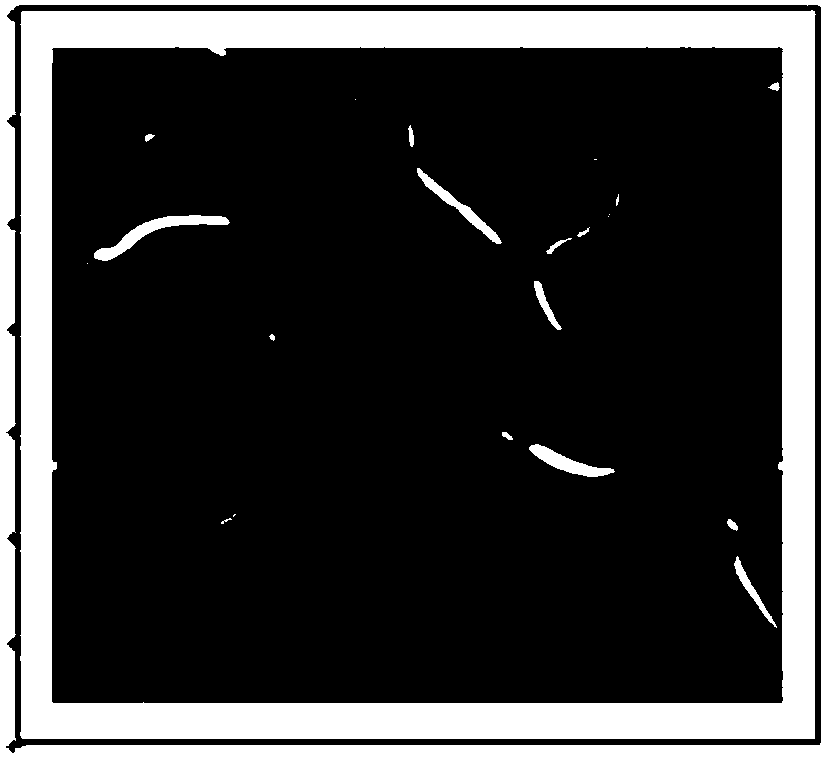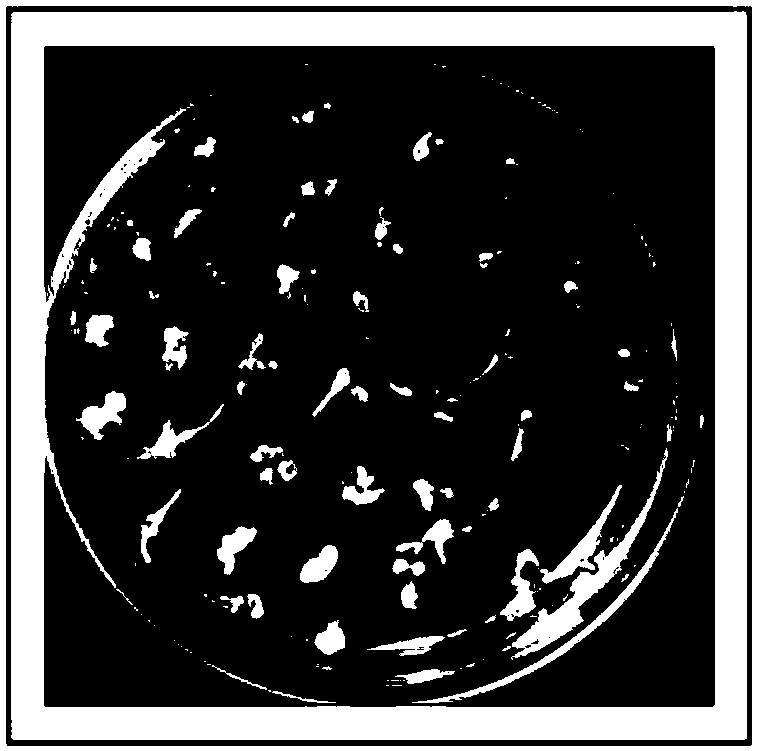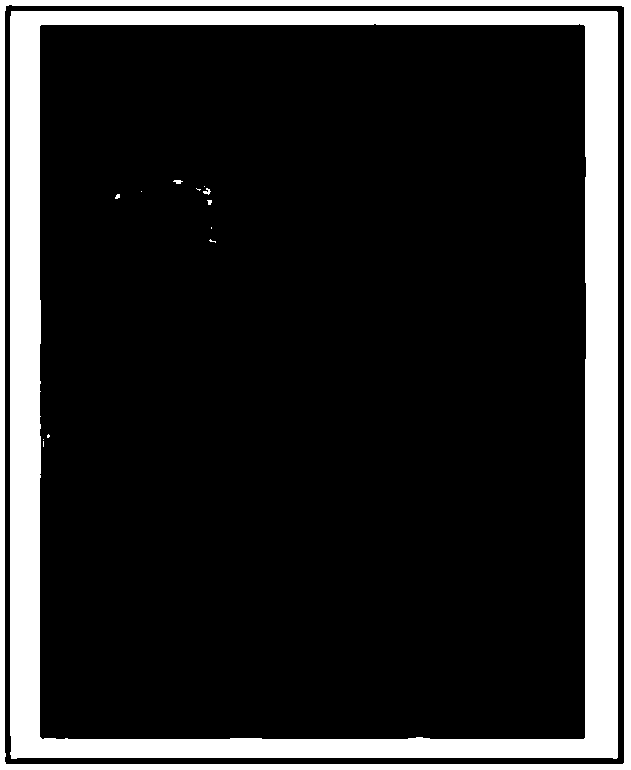A kind of in vitro rapid propagation method of L. latifolia
A wide-leafed solitary vegetable and solitary vegetable technology, applied in the field of plant tissue culture, can solve problems such as low reproduction efficiency, achieve the effects of improving reproduction efficiency, overcoming geographical restrictions, and expanding the source range
- Summary
- Abstract
- Description
- Claims
- Application Information
AI Technical Summary
Problems solved by technology
Method used
Image
Examples
preparation example Construction
[0033] (1) Preparation of sterile explants: select mature and plump Lepidium chinensis seeds, sterilize them with a mass concentration of 2% sodium hypochlorite for 25 minutes, wash them with sterile water for 4 times, and sow them on MS basic medium. ~ 14 days old seedlings of L. japonica seedlings are chopped whole and used as sterile explants for rapid propagation in vitro.
[0034] (2) Inoculate the sterile explants on the rapid propagation medium to induce the regenerated seedlings and rapidly amplify and propagate; the conditions used for the rapid amplify and propagate are 23-25°C for cultivation, 14 hours of light per day, and 10 hours of light In the dark, subculture once every 14-21 days, and induce culture for 28-42 days.
[0035] (3) Transfer the induced regenerated shoots into MS basic medium for rooting induction; the conditions for rooting induction are: culture at 23-25° C., 14 hours of light and 10 hours of darkness per day, and co-induction culture for 20 day...
Embodiment 1
[0043] Embodiment 1: Gather in Qinghai the normal seedling rapid propagation of L. latifolia
[0044] The specific method is as follows:
[0045] (1) Acquisition of sterile explants: select mature and plump ones from the seeds of L. latifolia harvested in Qinghai area, sterilize them with 2% sodium hypochlorite for 25 minutes, wash them with sterile water for 4 times, and sow them in MS basic culture. Basically, 10 days after the germination of the sterile seedlings, the whole seedlings were evenly cut into 10 pieces as sterile explants for rapid propagation in vitro.
[0046] (2) Inoculate the sterile explants on the rapid propagation medium, the culture conditions are 23-25 °C, 14 hours of light every day, 10 hours of darkness, subculture once every 14 days, co-induction culture for 28 days, and obtain in vitro expansion. Prosperous regenerated L. latifolia in vitro seedlings, the average number of each explant forming in vitro regenerated seedlings is 1.104 strains in th...
Embodiment 2
[0051] Example 2: Rapid propagation of radicle-deficient seedlings of L. latifoliatum harvested in Shandong
[0052] The specific method is as follows:
[0053] (1) Acquisition of sterile explants: select mature and plump ones from the seeds of L. latifolia harvested in Shandong, sterilize them with 2% sodium hypochlorite for 25 minutes, wash them with sterile water for 4 times, and sow them in MS basic culture. Basically, 14 days after the germination of the sterile seedlings, the whole seedlings lacking radicle were evenly cut into 10 pieces as sterile explants for rapid propagation in vitro.
[0054] (2) Inoculate the sterile explants on the rapid propagation medium, the culture conditions are 23-25 ° C, 14 hours of light every day, 10 hours of darkness, subculture once every 21 days, co-induce and culture for 42 days, and obtain in vitro expansion. Prosperous regenerated L. latifolia in vitro seedlings, the average number of each explant forming in vitro regenerated see...
PUM
 Login to View More
Login to View More Abstract
Description
Claims
Application Information
 Login to View More
Login to View More - R&D
- Intellectual Property
- Life Sciences
- Materials
- Tech Scout
- Unparalleled Data Quality
- Higher Quality Content
- 60% Fewer Hallucinations
Browse by: Latest US Patents, China's latest patents, Technical Efficacy Thesaurus, Application Domain, Technology Topic, Popular Technical Reports.
© 2025 PatSnap. All rights reserved.Legal|Privacy policy|Modern Slavery Act Transparency Statement|Sitemap|About US| Contact US: help@patsnap.com



